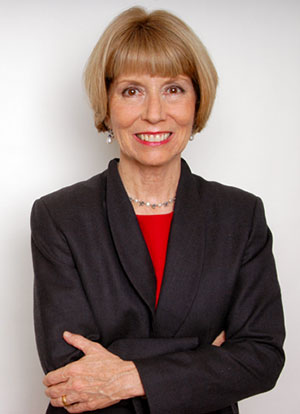When Cheryl Perry returns to the School of Public Health on Nov. 16, 2015 to deliver this year’s Martinson Lecture, she plans to let the research do the talking.

“I was trained by Henry Blackburn not to hype things too much,” says Perry.
Blackburn was the head of the Division of Epidemiology and Community Health when Perry arrived at SPH in 1980, and he taught that one’s work should stand on its own and praise should come from external sources.
35 years later, Perry is indeed a meritorious success and she returns to SPH as the regional dean of the University of Texas School of Public Health-Austin and a national expert on adolescent health behavior and promotion.
Perry’s presentation is for the annual disease prevention lecture held in memory of Carl J. Martinson, MD, founder of the Minnetonka Hospital and The Martinson Clinic, and a friend of SPH.
Perry is speaking on a topic Martinson considered very grave to human health: smoking. Her upcoming presentation, “The Cigarette Century,” details public health’s near total defeat of smoking in the U.S. in recent decades, and outlines how its example could be modeled to address other major health concerns, like obesity.
Teaching kids to avoid smoking
Perry has always seen smoking as one of the greatest threats to the wellbeing and future of children.
“A lot of chronic diseases start when we are children, like cancer and heart disease,” says Perry. “Nearly all smoking starts before high school graduation and then it goes on for thirty years, so getting kids to not start smoking is a big priority.”
In her previous career as a school teacher and principal in California, Perry saw firsthand how smoking and other harmful habits take hold of kids while they’re still young.
Perry wanted to do something to stop the problems before they start, so she retooled her career with an education PhD from Stanford and headed to Minnesota.
“She came to us for her first job and immediately began building a first-rate — and some might even say best in the country — health education program for disease prevention in kids,” says SPH professor and physician Russell Luepker, a cardiovascular disease researcher and longtime colleague of Perry’s.
A prime example of Perry’s tobacco work involved the Minnesota Heart Health Program. Perry and other SPH researchers implemented a comprehensive educational smoking prevention program with sixth graders in North Dakota and Minnesota and compared those students to sixth graders in South Dakota.
“We followed and surveyed the students for seven years — from sixth to twelfth grades — and found a substantial reduction in smoking — about 40 percent — among the twelfth grade students in North Dakota and Minnesota,” says Perry. “This demonstrated that schools, parents, and community efforts can make a long-term difference in kids’ lives.”
Perry was also the senior scientific editor of the 1994 Surgeon General’s Report focusing on youth and smoking. That report set the stage for the groundswell of state tobacco lawsuits against cigarette manufacturers and the massive $206 billion Master Settlement Agreement that eventually followed.
“Cheryl was one of the lead witnesses in the Minnesota tobacco trial and did a phenomenal job,” says Luepker. “Minnesota ended up getting a larger settlement.”
To Texas
In 2006, Perry left SPH to accept a major opportunity — and challenge — in the Lone Star State.
“Texas asked me to start a regional campus in Austin,” says Perry. “It was like starting my own mini school of public health.”
As dean, Perry guided the selection of faculty, creation of graduate programs, and the completion of space for the campus. With Perry’s guidance, the school focuses on research in child and adolescent health, chronic disease prevention, and public health policy.
A key school feature that Perry helped establish is the The Michael & Susan Dell Center for Healthy Living, which is known for its work in obesity prevention in children and families.
Anti-smoking work continues to be a priority for Perry too, and under her leadership, her school is becoming a national voice in tobacco control with the recent creation of its FDA and NIH funded Tobacco Center of Regulatory Science on Youth and Young Adults in 2013.
The Martinson Lecture
Perry will share more about her insights into tobacco research and prevention during the Martinson Lecture on Nov. 16, 2015 from 4-5:30 p.m. in the Mayo Auditorium. Please RSVP by Nov. 11, however, walk-ins are welcome. The lecture will also be streamed live and archived on YouTube.
“I am very happy to be coming back to the School of Public Health,” says Perry. “I feel very thankful for this opportunity and am looking forward to seeing my colleagues and friends of many years.”

